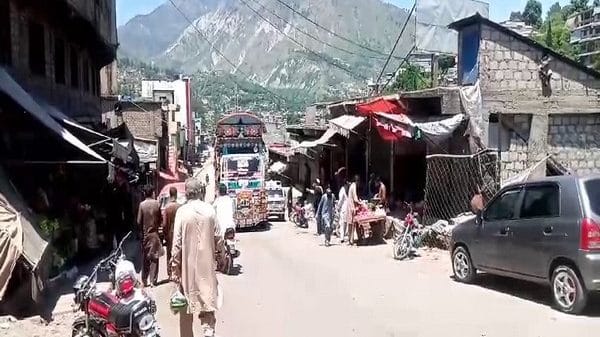Thank you dear subscribers, we are overwhelmed with your response.
Your Turn is a unique section from ThePrint featuring points of view from its subscribers. If you are a subscriber, have a point of view, please send it to us. If not, do subscribe here: https://theprint.in/
For over 75 years, India has marked all of undivided Jammu and Kashmir—222,293 square kilometers, including Pakistan-occupied Kashmir (POK) and Gilgit-Baltistan—as part of its sovereign territory. This territorial claim, rooted in the Instrument of Accession signed by Maharaja Hari Singh in 1947, has remained legally and symbolically unchallenged within India. Yet, despite this historic accession, roughly 91,000 square kilometers of that land remain under Pakistan’s control.
Successive Indian governments have treated this as a cartographic issue—ensuring that global institutions and publishers display the correct map—but have made no substantive effort to bring these regions back into Indian governance. The real question we must ask ourselves is this: Have we settled for symbolic victories, or is it time to pursue actual reunification?
A Moral and Constitutional Duty
The Instrument of Accession did not come with fine print. It was full, legal, and final. Maharaja Hari Singh acceded the entirety of his princely state to India—not just the parts under current Indian administration. This makes POK and Gilgit-Baltistan not merely disputed territories, but regions under illegal occupation. India’s duty, then, is not only constitutional but moral: to extend good governance and civil liberties to all Kashmiris, including those still separated by force.
The people of POK suffer under neglected governance, systemic underdevelopment, and political suppression. While the media may be restricted there, human rights reports and testimonies continue to surface. Their plight should not be viewed as Pakistan’s problem alone—it is India’s responsibility as well.
Missed Opportunities and Strategic Silence
History has provided India with
multiple windows to act. The 1971 Bangladesh Liberation War could have been a dual-front effort: one to liberate East Pakistan, the other to reclaim POK. Later, the 90,000 Pakistani prisoners of war—nearly 20% of Pakistan’s armed forces—presented another strategic opportunity. Again, in 1999 during the Kargil conflict, a southern push could have paved the way to Muzaffarabad. But each time, India held back, constrained by diplomatic caution and concern over international reactions.
That restraint, once necessary, may no longer be. The world has evolved. India is now a global power with widespread diplomatic goodwill. The abrogation of Article 370 in August 2019, carried out swiftly and without external intervention, demonstrated that bold domestic action—if done responsibly—can be accepted by the global community.
Learning from Global Precedents
Reintegration efforts around the world have rarely been peaceful. China’s control over Tibet, Russia’s reabsorption of Crimea—however controversial—were executed through swift, decisive action and followed by firm diplomatic narratives. Jammu and Kashmir’s case is different: it is not annexation, but reunification of a territory that legally acceded to India.
That said, any future move must be carefully managed in three stages:
- Strategic Action – Quiet, decisive steps taken with precision, as was done during the Article 370 abrogation.
- Diplomatic Patience – A period of silence where India lets global reactions play out while remaining firm in its stance.
- Hearts and Minds – True reunification means not just reclaiming land but integrating people through education, opportunity, and respect.
This third stage is the most important. If Kashmiris are to fully feel Indian, they must be treated as such—not with suspicion, but with solidarity. Integration cannot be achieved through laws and infrastructure alone; it must be built through empathy, inclusion, and trust.
The Time Is Now
POK’s continued separation is not a distant or dormant issue. It is unfinished business—of history, of law, and of national unity. Pakistan itself, facing severe internal crises, has increasingly neglected the region, allowing its infrastructure and institutions to decay. The people of POK deserve better, and India has the capacity to offer it.
We must move beyond defending maps and start realizing them. The annulment of Article 370 was not the end of a chapter—it was the beginning of one. A united Jammu and Kashmir, governed justly and integrated fully, is not just possible—it is overdue.
India must act with conviction and compassion. Let us not delay justice any longer—for the land, for the people, and for the integrity of our nation.
Col(Dr.) Mohinder Pal Singh is an Army veteran and Director of the EGROW Foundation, Noida. The views expressed are personal.
These pieces are being published as they have been received – they have not been edited/fact-checked by ThePrint.


